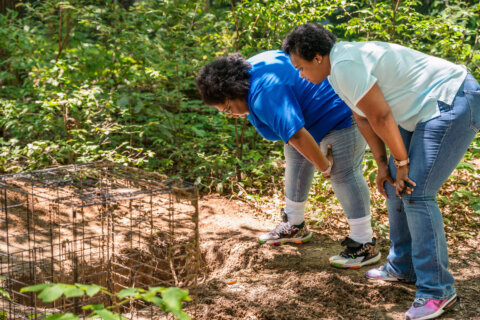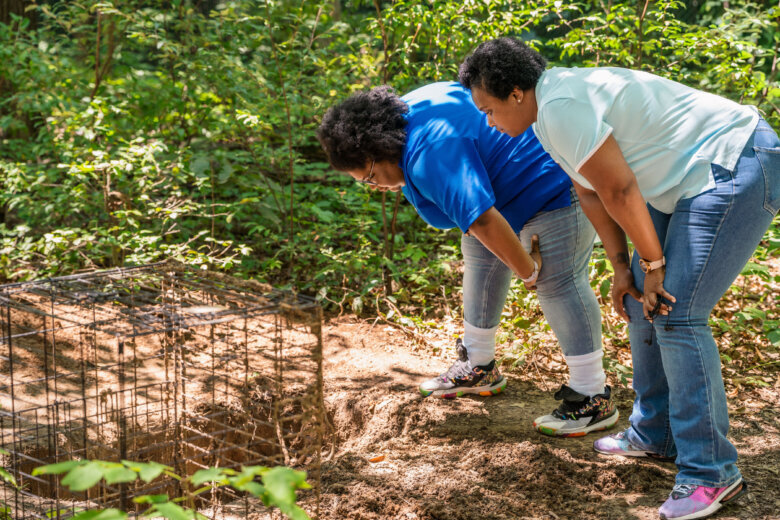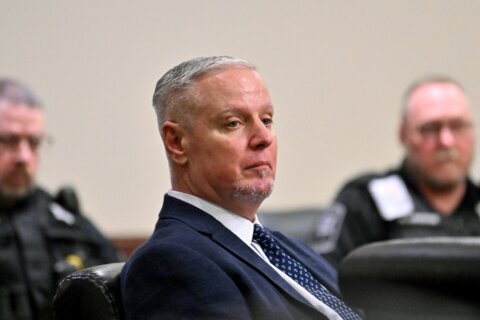
“What the climate can do to the human body can be very perplexing,” said Mary Ellen O’Toole, a former FBI agent, whose specialty involved working on serial killer cases.
O’Toole now heads the George Mason University Forensic Science Program, which includes a facility informally called a “body farm” — one of only 10 in the world.
“We prefer to call them donors, rather than just bodies, because they’ve so graciously contributed their bodies to science,” said professor Georgia Williams, a forensic DNA expert and mentor of a program that hosts guest researchers from other schools.
The outdoor forensic research lab provides hands-on training and research, in the blending of science and the search for justice.
“Decomposition that will happen indoors, versus outdoors is definitely different,” said Williams. “In Virginia, with the seasons, it’s going to look very different here than it will in Texas.”
In her 28 years as an FBI agent, mostly as a criminal profiler trying to solve serial murder cases, O’Toole said, “Most of those resulted in the victims being left outside, sometimes for extended periods of time, if not years.”
In a D.C.-area summer, “Weather conditions can cause accelerated decomposition, or things can slow down in the winter,” she said, which poses a challenge as forensic scientists try to determine how long a person has been dead.
“Why does it matter? It matters because that can include or exclude possible suspects,” O’Toole said.
Last summer, students from Southern University at New Orleans learned in the lab as part of a program that pairs aspiring scientists from Historically Black Colleges and Universities to the Criminal Investigators and Network Analysis consortium led by Mason. The scientific research, aimed at advancing national security, is funded by the Department of Homeland Security.
“At first the students were somewhat squeamish, as you might imagine, because they were burying a pig,” O’Toole said.
However, the students realized the importance of the research, she said.
“We do this not only to advance the science, but to bring closure to families that have missing loved ones,” said Williams.
There’s no signs of the field shrinking.
“It is estimated that forensic science will grow in the next 10 to 15 years by as much as 14%” O’Toole.
Much of the workforce is made up of women. Around 87% of participants in George Mason University’s program are women, according to O’Toole.
O’Toole echoed the noble goal of the research, in advancing forensic science: “The science is not only going to be for our students in the classroom, it’s going to go to court with us, as well.”
Get breaking news and daily headlines delivered to your email inbox by signing up here.
© 2024 WTOP. All Rights Reserved. This website is not intended for users located within the European Economic Area.








